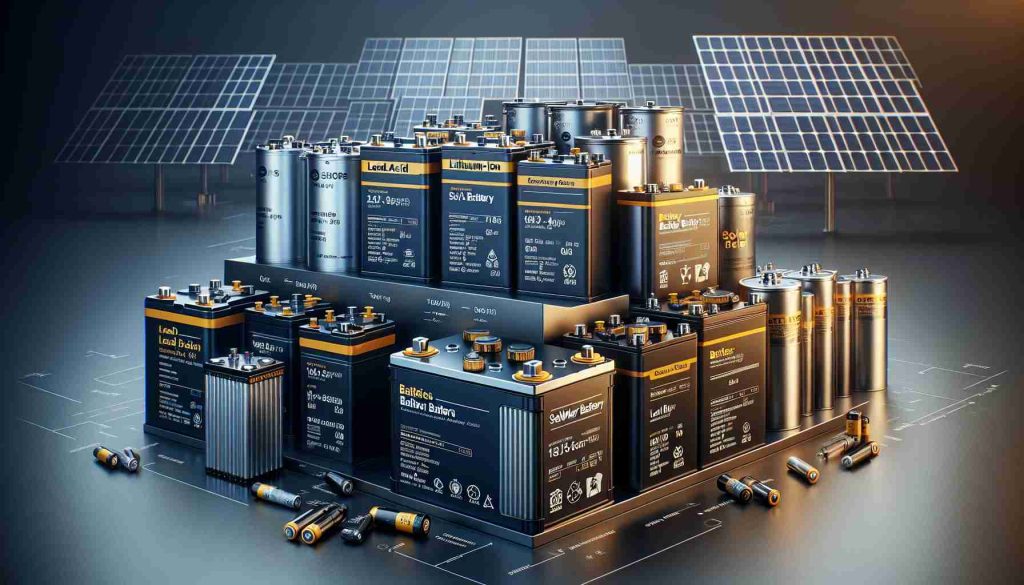Deciphering the Best Battery Companion for Solar Panels – yTech
A new study conducted by the University of New South Wales in Australia provides insightful analysis on the ideal battery storage system for rooftop solar panels, comparing the hydrogen-based LAVO system with the lithium-ion Tesla Powerwall 2. The research reveals a trade-off between economic efficiency and longevity, highlighting the financial benefits of lithium-ion batteries as well as the enhanced durability offered by hydrogen batteries.
The results indicate that lithium-ion batteries not only have a higher roundtrip efficiency but also a faster payback period, making them financially superior in the short term. Lithium-ion options can reach breakeven up to nine years earlier than hydrogen batteries. However, the latter excel in lifespan, with the capability to endure significantly more charge cycles than their lithium-based counterparts.
In the context of sustainability, the study underscores the environmental implications of choosing a hydrogen battery system, especially its reliance on water resources, potentially limiting its use in water-scarce regions. Consequently, both economic and environmental factors are critical when homeowners and businesses seek a fitting battery storage solution for their solar energy systems.
Summary:
The research emphasizes the importance of selecting the right battery storage system to accompany rooftop photovoltaic (PV) installations, balancing immediate financial returns against longer-term sustainability goals. It serves as a valuable resource for those looking to invest in solar energy conversions, with a spotlight on the differing advantages of mainstream commercial battery technologies. With the ongoing evolution of the battery storage market, the study highlights the complex decision-making process faced by consumers and serves as a guide for prioritizing financial gains versus long-term storage needs.
The Solar Battery Storage Industry
The solar battery storage industry is a rapidly growing sector fueled by the increasing adoption of renewable energy sources and the global push for sustainable living. As solar photovoltaic (PV) systems become more prevalent, the demand for efficient and reliable energy storage solutions is rising. The market for solar battery storage is expected to continue its expansion, with market research firms forecasting robust growth. Several key factors driving this market include falling costs of both solar panels and batteries, technological advancements, government incentives, and growing consumer awareness of the benefits of energy independence and decarbonization.
Market Forecasts
Market analysts anticipate a significant surge in the solar battery storage market over the next decade. As the costs of lithium-ion batteries continue to decrease, many homeowners and businesses are expected to integrate battery storage into their solar energy systems. This trend is further supported by the development of smart grids and energy management technologies that enhance the efficiency of battery usage.
At the same time, emerging technologies, like the hydrogen battery systems mentioned in the University of New South Wales study, might also gain a foothold in particular niches that value longevity and lower environmental impacts over economic efficiency. As innovations continue to emerge, they could potentially disrupt the market and alter current forecasts.
Industry Issues
Despite its rapid growth, the solar battery storage industry faces a range of issues. There is a considerable environmental footprint associated with the production and end-of-life disposal of lithium-ion batteries. Supply chain concerns, including the sourcing of raw materials like lithium, cobalt, and nickel, pose social and environmental challenges. Meanwhile, the production of hydrogen for energy storage must become greener, relying more on renewable sources rather than fossil fuels, to ensure its role in a sustainable energy future.
Water usage is another concern for hydrogen storage systems like the LAVO, with water scarcity already being a pressing issue in various parts of the world. Competition for this vital resource necessitates careful consideration when deploying such technologies on a large scale.
Conclusion and Industry Resource Links
The study from the University of New South Wales is instrumental in informing both consumers and stakeholders about the choices available for solar energy storage, and the pros and cons associated with each option. It also highlights the need for continued research and development to improve the performance and ecological impacts of these systems.
For those interested in additional information about the solar energy industry and market trends, reputable resources include:
– The International Energy Agency (IEA): IEA Main Page
– Bloomberg New Energy Finance (BNEF): BNEF Main Page
– The U.S. Energy Information Administration (EIA): EIA Main Page
These links provide access to a wealth of data, analysis, and forecasts that can help individuals and businesses make informed decisions about solar energy investments and the integration of battery storage systems.
[embedded content]

Iwona Majkowska is a prominent figure in the tech industry, renowned for her expertise in new technologies, artificial intelligence, and solid-state batteries. Her work, often at the forefront of innovation, provides critical insights into the development and application of cutting-edge AI solutions and the evolution of energy storage technologies. Majkowska’s contributions are pivotal in shaping the future of sustainable energy and intelligent systems, making her a respected voice in both academic and industrial circles. Her articles and research papers are a valuable resource for professionals and enthusiasts alike, seeking to understand the impact and potential of these transformative technologies.


